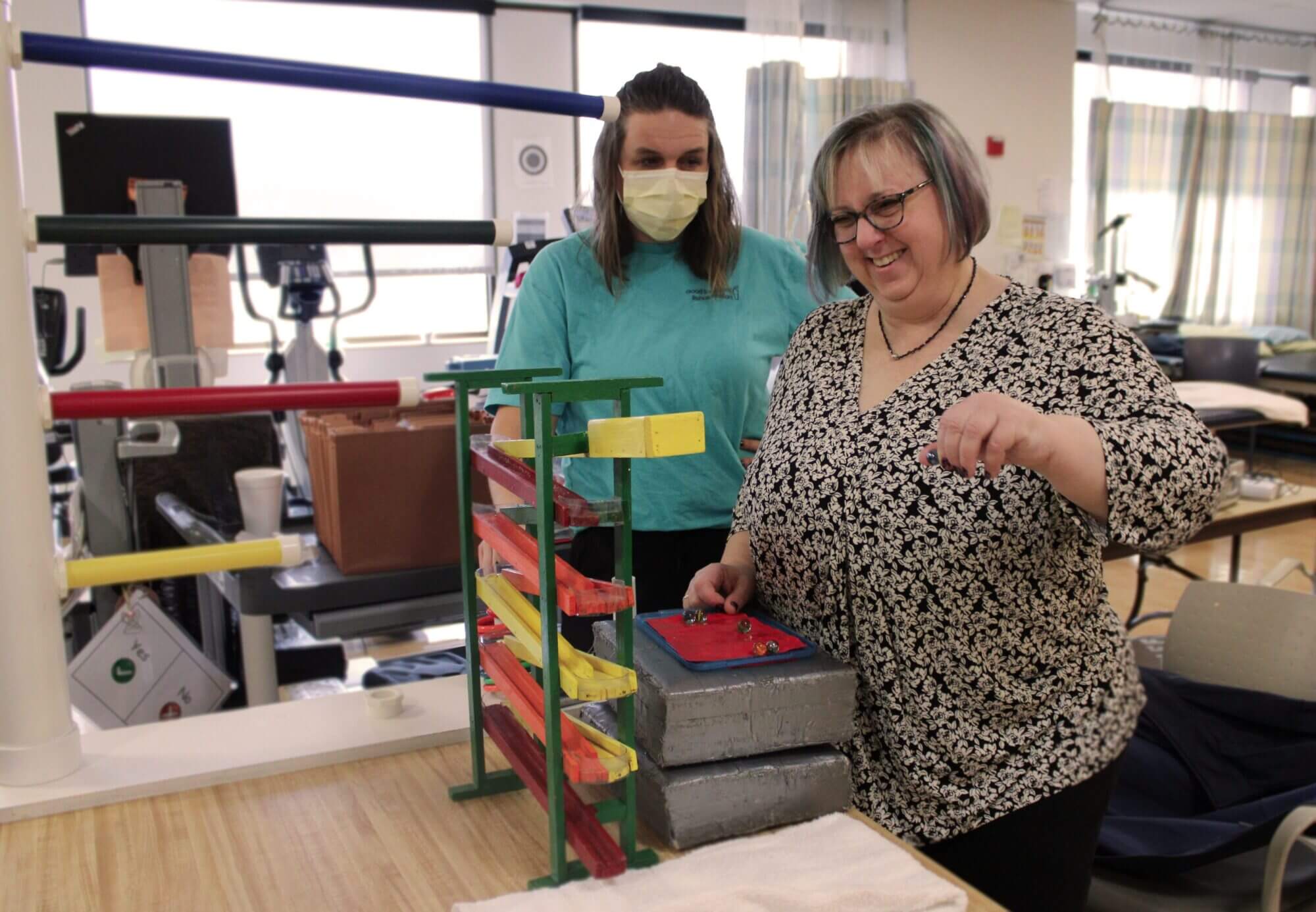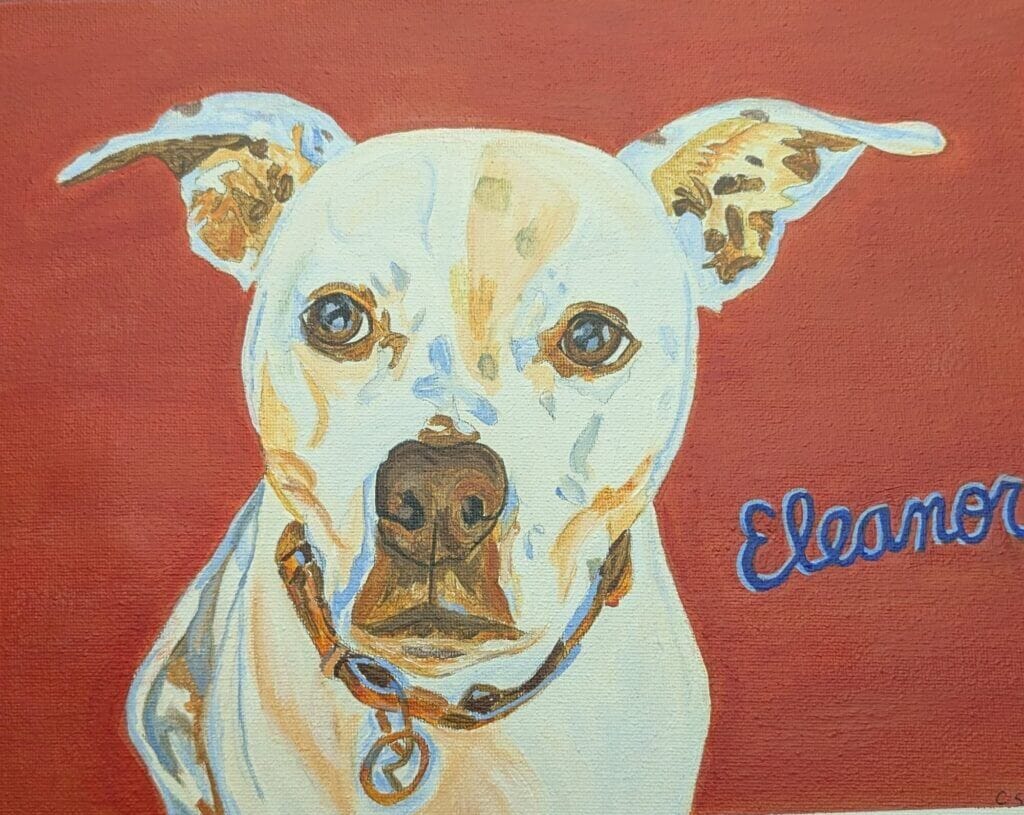Why Choose Us
Learn more about Good Shepherd Rehabilitation Hospital, a destination for recovery for stroke, brain injury, spinal cord injury and complex medical rehabilitation.

ALLENTOWN, Pa. — One night in 2020 while watching TV at home, Christy Shoup noticed the sensation in her left hand disappearing. Recognizing the symptoms of a stroke, she put her dogs in their crates, dialed 911 and managed to walk to the ambulance before losing motor function in her left leg. An ambulance took Christy to the nearest hospital; she was suffering an ischemic stroke, which doctors told her was a complication from COVID-19.
For 20 years, Christy, now an Easton resident, worked as a veterinarian in Maryland. But after her stroke, everything changed. She struggled with anger and frustration, not only toward her condition but also at the virus that triggered it. The impact on her career and independence was profound. However, Christy wasn’t ready to accept the limitations set before her.
“I was angry,” she said. “It was difficult to face the reality that I couldn’t do what I worked toward for my entire life.”
Immediately following her stroke, her doctors in Maryland told Christy that whatever progress she would make in regaining hand and arm function during the first six months of recovery would likely be her “new normal.”
“I wasn’t happy with that,” she said. “Good Shepherd occupational therapists and neuropsychology staff helped me realize I could push myself further and continue to progress.”
“Living with gratitude helps maintain a positive attitude about my recovery.”
Christy Shoup
Four years later, Christy has made incredible progress, particularly in her time at Good Shepherd Rehabilitation. She no longer requires a wheelchair, having full mobility without the need of a cane or walker. Through outpatient physical and occupational therapy and Good Shepherd’s driving program, she has regained movement in her shoulder and she’s able to drive again. The ability to drive has restored a sense of independence she thought she lost forever.
About a year ago, Christy learned about Vivistim®, a small, implanted, FDA-approved device that helps stroke survivors regain hand and arm function when used in combination with rehabilitation therapy. The small implant stimulates the vagus nerve, promoting the release of neurotransmitters that help form new neural pathways in the brain.
After learning about the technology, Christy decided to give it a try. Following surgery, Christy began Vivistim therapy at Good Shepherd, attending 90-minute sessions three times a week. Good Shepherd is recognized as an official Vivistim evaluation and rehab therapy provider. Each session involves using a clicker to activate the device, which stimulates the vagus nerve to aid in her recovery.

At home, Christy uses a magnet to continue the therapy, activating it up to eight times a day for 30-minute sessions. This at-home use allows Christy to stay consistent with her treatment, helping her continue her progress. Christy has started to do the dishes and other household activities that once were difficult, if not impossible, for her after the stroke.
“Your brain forgets that your affected arm is even there; the first six weeks of Vivistim therapy have helped me to begin incorporating my hand into daily life again,” she said.
Christy has learned to set smaller goals and track her progress, appreciating every step forward, no matter how small.
“It is important to realize that progress with the Vivistim System is slow — on the order of 1/2 to 1 percent a day, but it adds up,” Christy said. “I started to record myself performing tasks weekly so I can look back and see the progress. It helps me to stay motivated.”
Throughout her recovery, Christy has found a supportive community at Good Shepherd. The team has helped her physically and become a source of friendship and encouragement, she said. Christy even painted a pet portrait for her occupational therapist, Lyndsey, as a way to thank her for the care she received.
Now living with her parents and two dogs, Christy cherishes the time spent with family.
“Living with gratitude helps maintain a positive attitude about my recovery,” she said.
Although she jokes about wishing she could do more around the house, she is deeply appreciative of the support from her parents.
Christy’s journey is a powerful reminder that recovery is possible, even after significant challenges — proving that perseverance can lead to new beginnings.